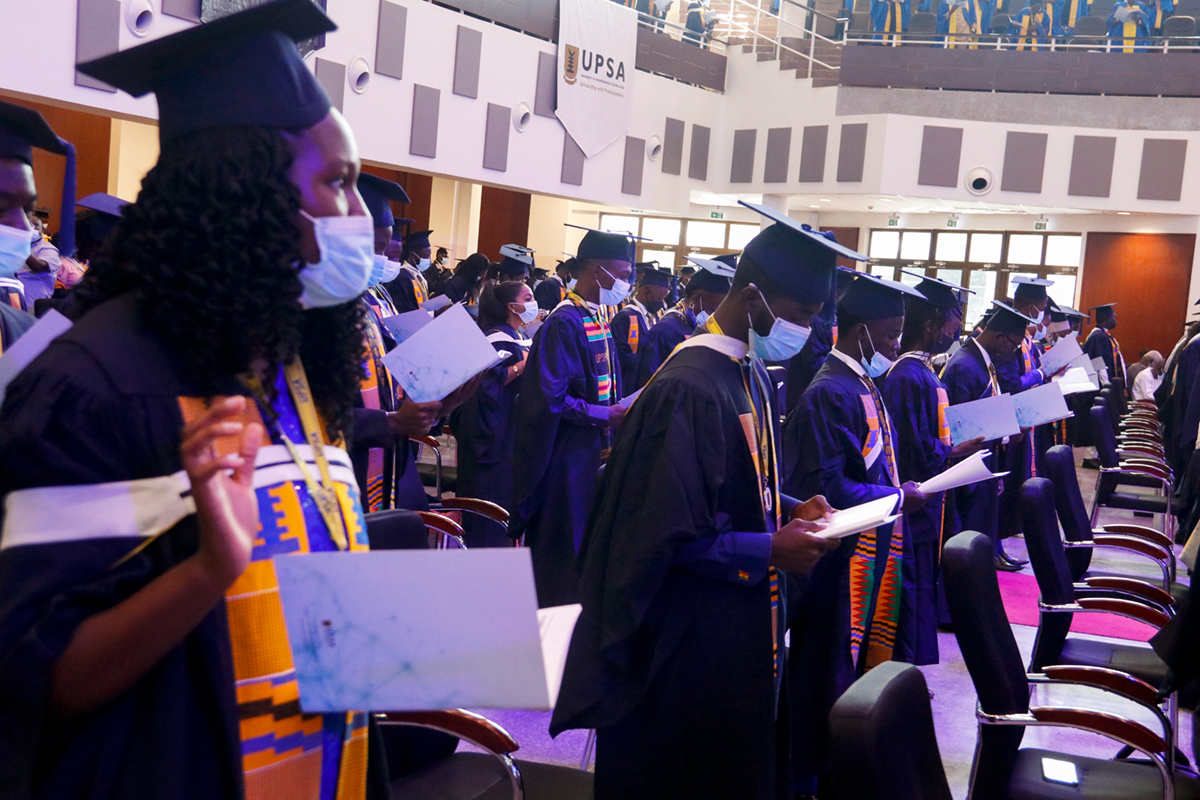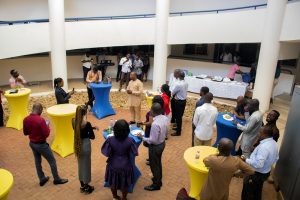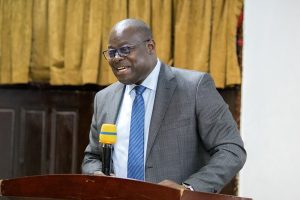The University of Professional Studies, Accra (UPSA) has held the fourth session of the 13th Congregation for some 1,094 graduates who completed various programmes of study for the 2020/2021 academic year.
The fourth and final Session of graduation 2021 witnessed the conferment of Diplomas and Degrees on graduates of the Faculty of Accounting & Finance.
The graduating students form part of the 2020/2021 cohort from which about 3,640 students have graduated this year.
The first, second and third sessions, held separately in July and October 2021, witnessed the graduation of 870, 515 and 1,127 students respectively.
Graduation Statistics
For the Fourth Session, the Faculty of Accounting and Finance presented a total of 1,094 students for graduation, made up of 905 degree students and 189 Diploma students.
For the Degree students, 26 obtained First Class, 298 Second Class Upper, 350 with Second Class Lower, 201 with Third Class and 30 with Pass.
Seven (7) of the diplomates attained Distinction, while 128 obtained Credit and 54 obtained Passes.
Growth in student population
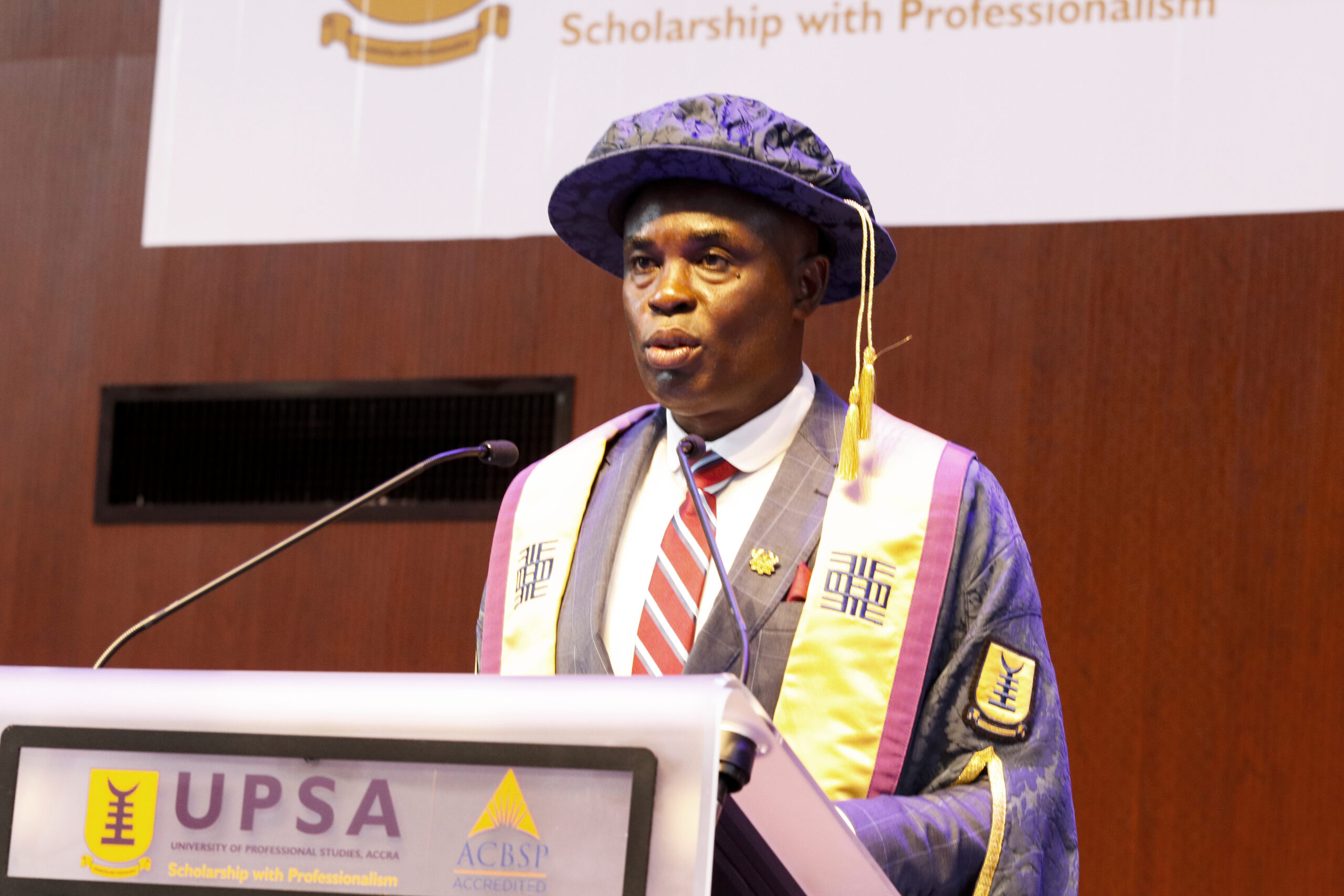
Addressing the Congregation on Thursday, October 14, the Vice-Chancellor of UPSA, Prof. Abednego F. O. Amartey disclosed that the faculty was graduating its first batch of students for the Bachelor of Science in Accounting and Finance programme which was mounted four years ago.
In highlighting the growing student population in recent years, Prof Okoe Amartey attributed the rapid progress to the University’s commitment to developing forward-looking academic programmes and partnerships that respond to current and anticipated future national needs.
“The University enrolled 8,247 new students at the beginning of the 2020/2021 academic year, bringing the total student population to 18,074,” he said.
“This number includes 1,687 postgraduate students, 13,434 undergraduate students, 2,793 diploma students and 160 professional students. The total student population comprises 9,827 males and 8,247 females.”
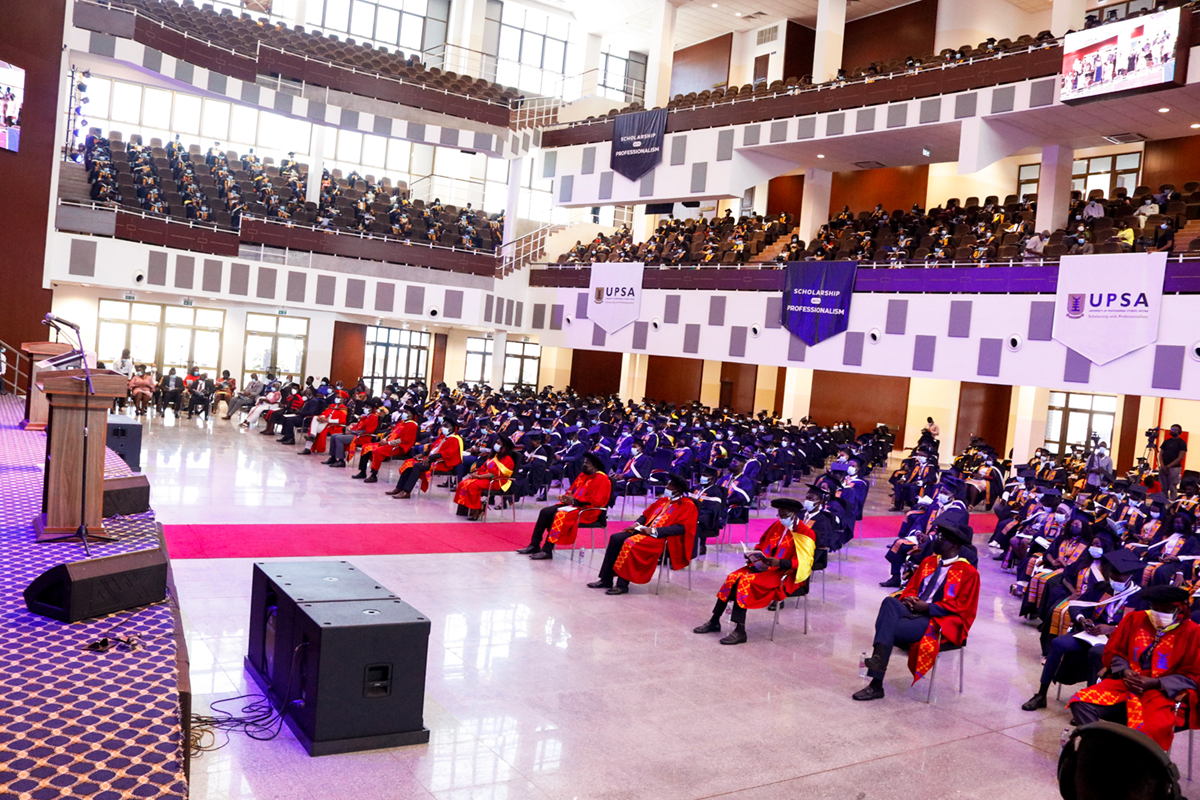
Partnerships
Prof. Amartey further disclosed that through strategic partnerships, UPSA is currently providing critical academic support to further enhance the professional capacities of essential staff of the Ghana Armed Forces and the Ministry of National Security in the discharge of their respective national mandates.
This he said has been made possible by UPSA’s growing status as one of the most progressive institutions of higher learning in the world.
“We are proud and humbled by the confidence both the Ghana Armed Forces and the Ministry of National Security have placed in UPSA,” he said.
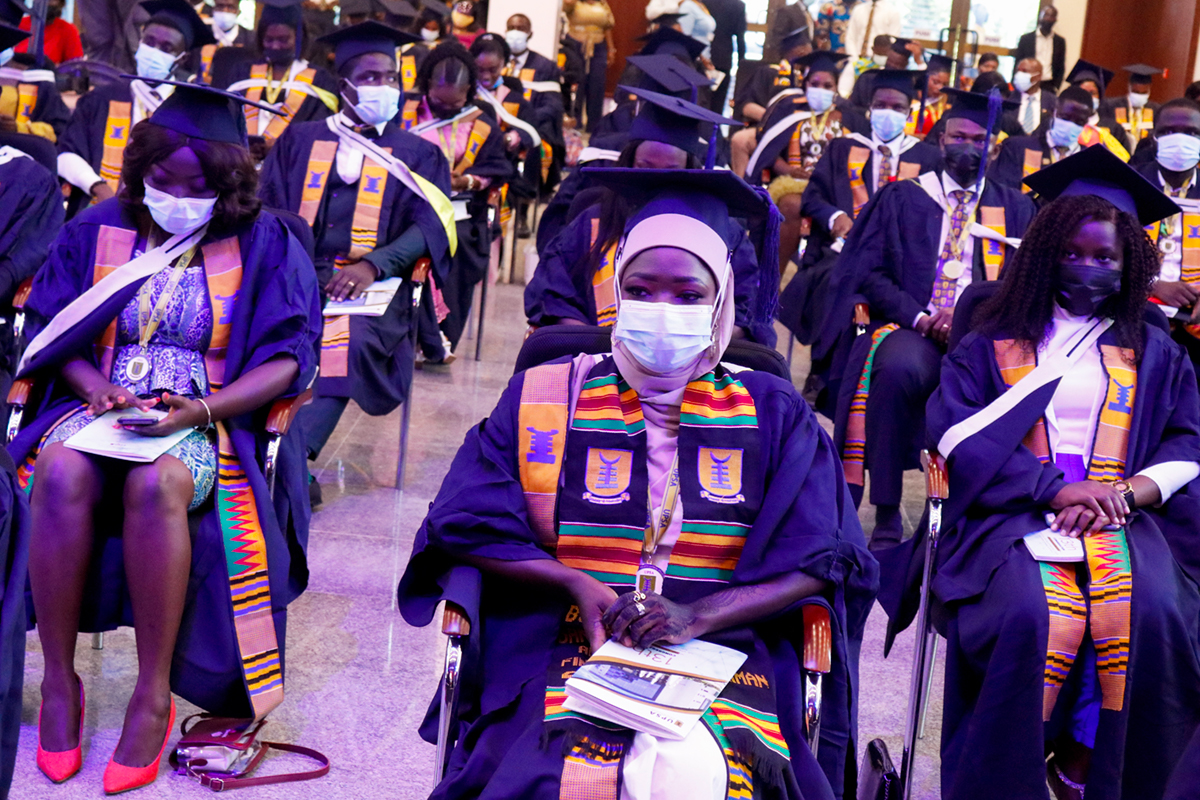
“With the Ghana Armed Forces, we are diligently working to develop Finance and Accounting courses and programmes to meet the unique needs of the Ghana Armed Forces.
“And with National Security, we have matriculated a little over 30 students in our Master’s in Peace and Security programme to equip them with the essential skills and knowledge to provide the necessary analytical support to national leaders to guide national priorities and decisions.”
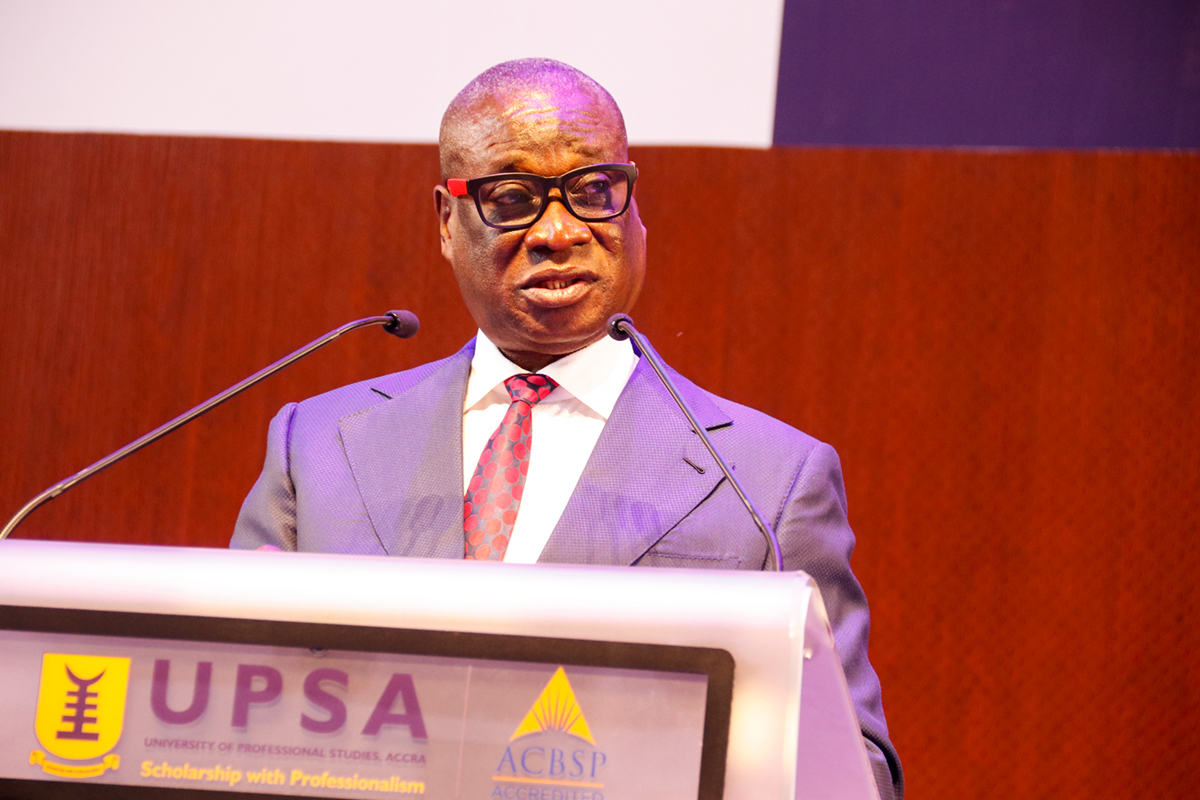
Congregation Speaker
In his remarks, the Chief Executive of the Ghana National Petroleum Corporation (GNPC), Dr Kofi Koduah Sarpong, urged graduands to acquire what he described as the “21st-century skills and core competencies” as they extend their education outside the classroom.
He noted that although graduating with big dreams, goals, hopes and aspirations is the right attitude towards the future, it was important for graduates to also focus on acquiring soft skills in order to enhance their employability and advancement in career.
“Currently, industries search for graduates who have more than a university degree”, he said. “They consider also life skills such as creativity, innovation, critical thinking, collaboration, teamwork, communication, empathy, digital literacy, among others, as essential skills for effective individual performance.
“These life skills mentioned above and affirmed by UNESCO, underpin the abilities for adaptive and positive behaviour that aid in dealing effectively with the challenges of everyday life, particularly, work.”

